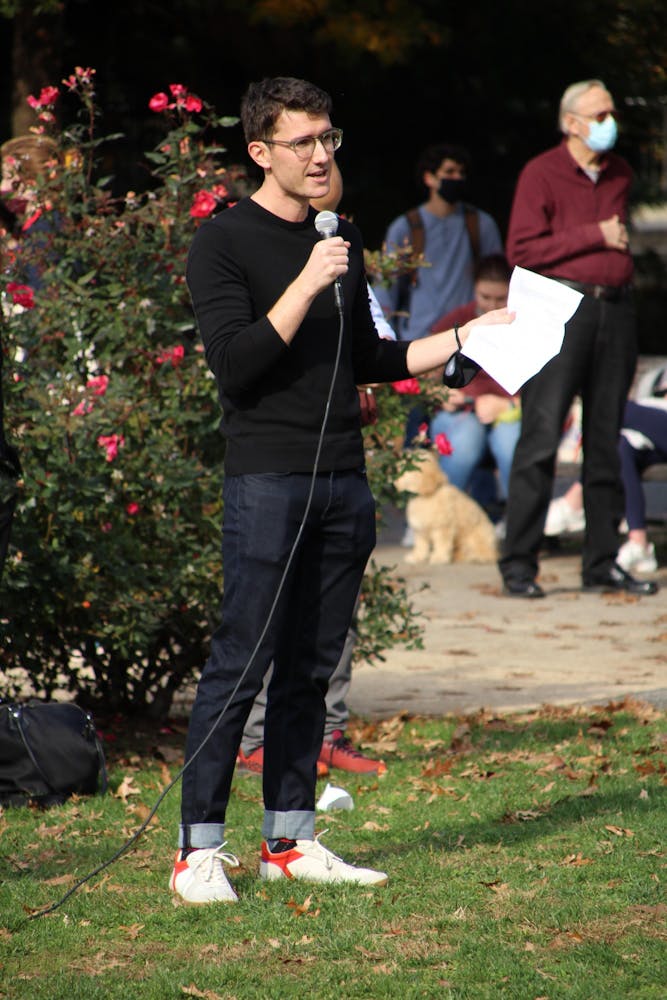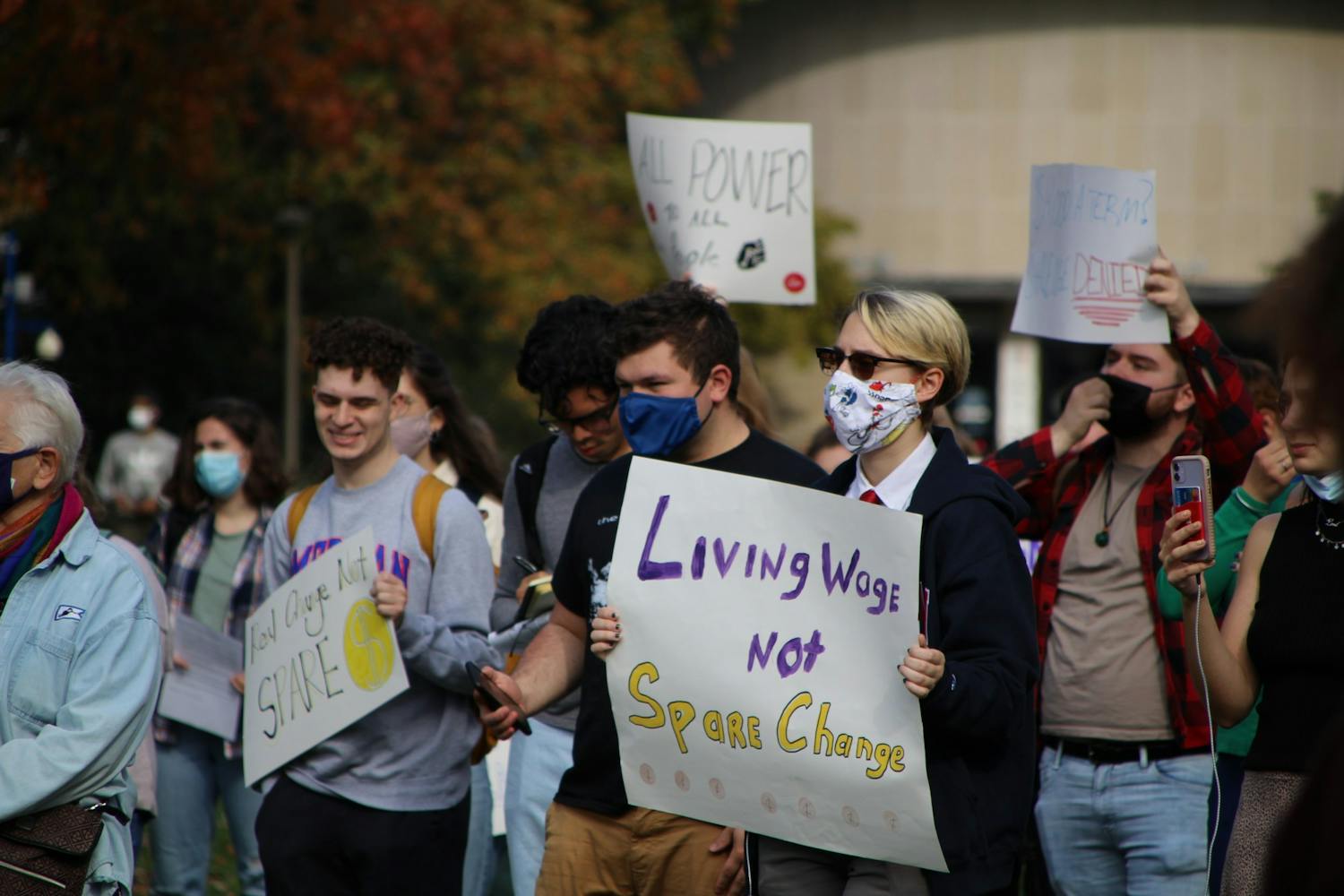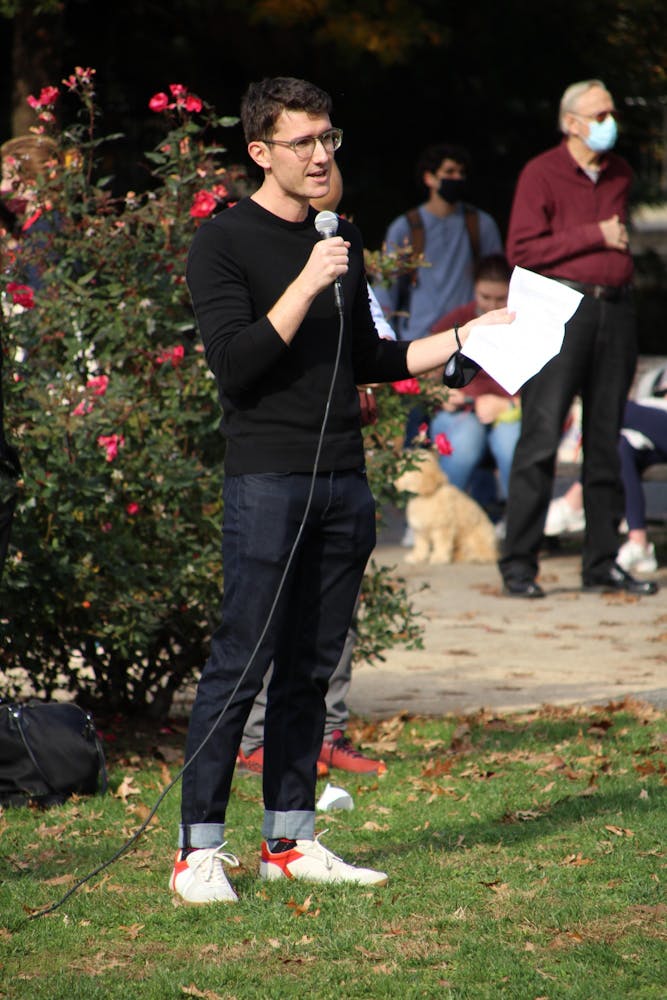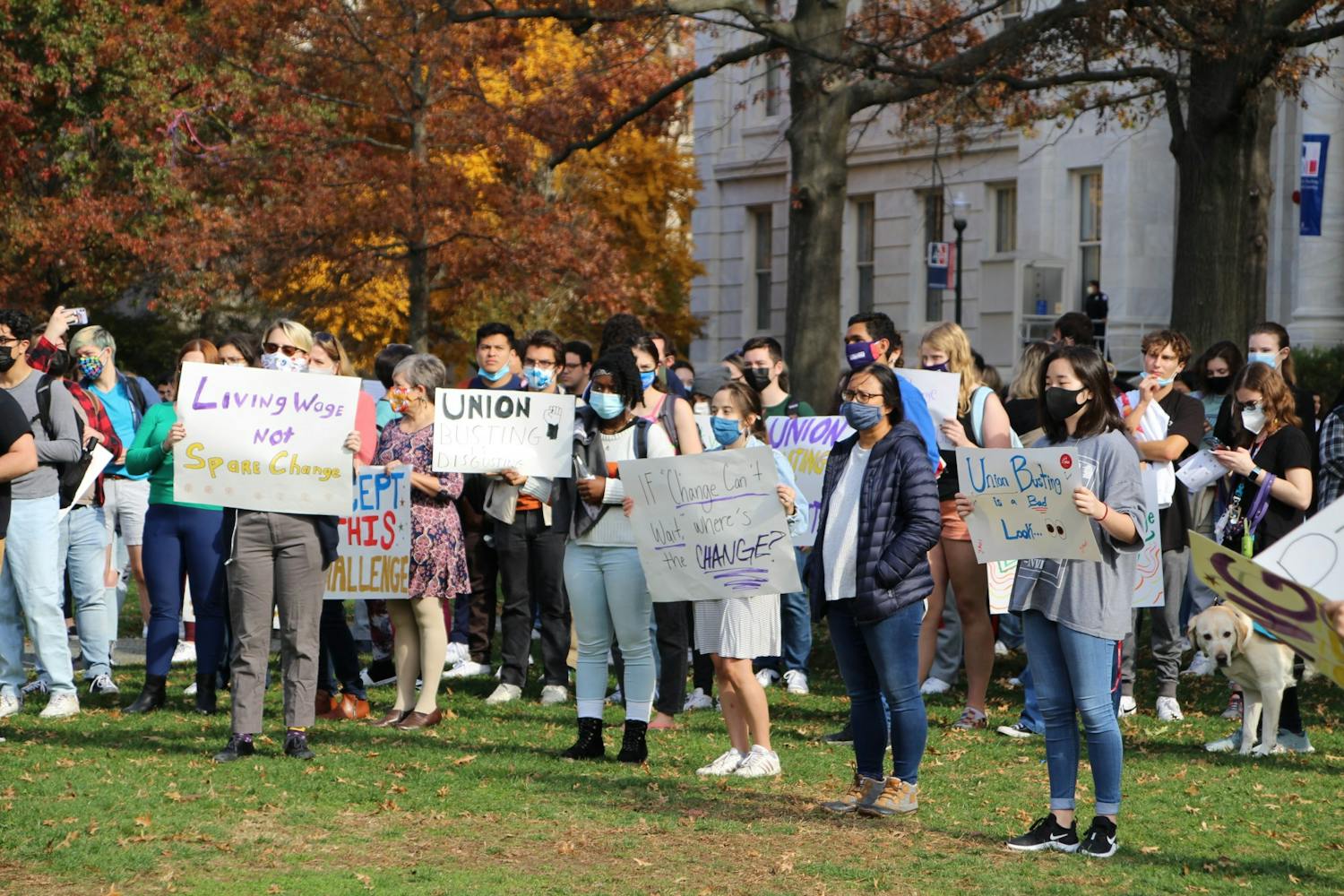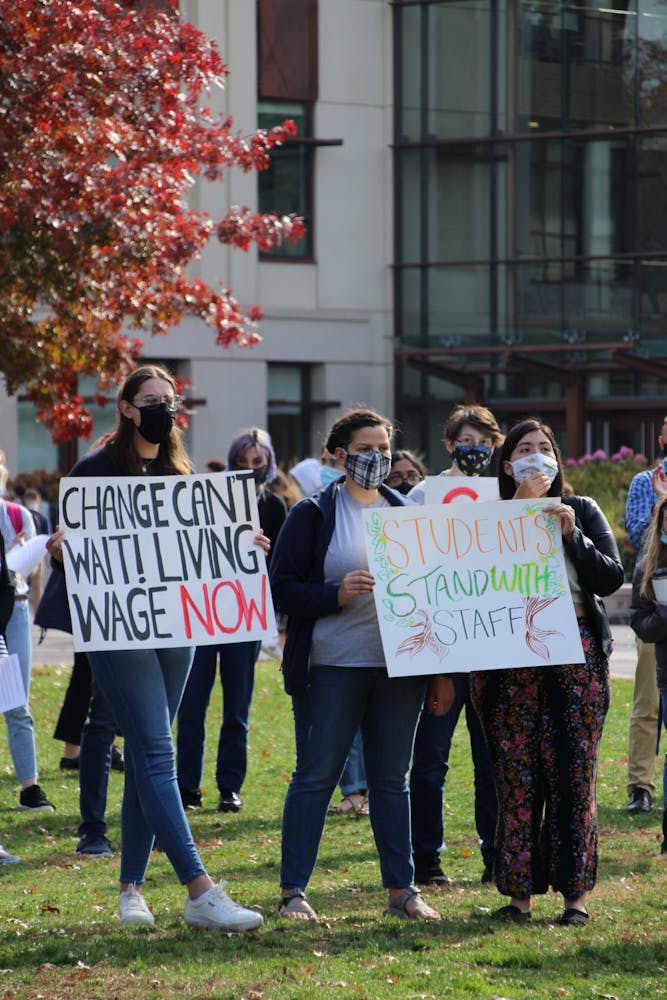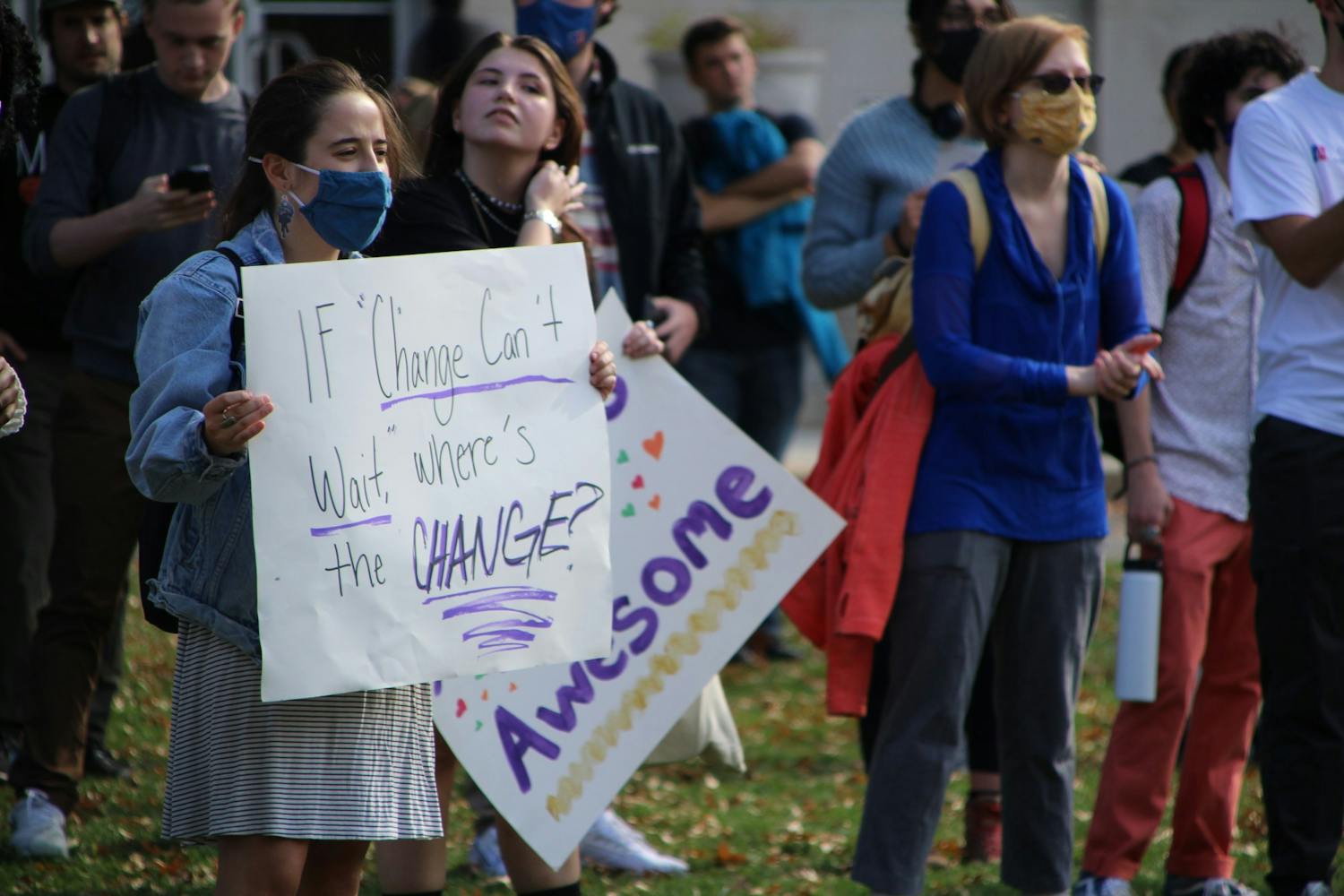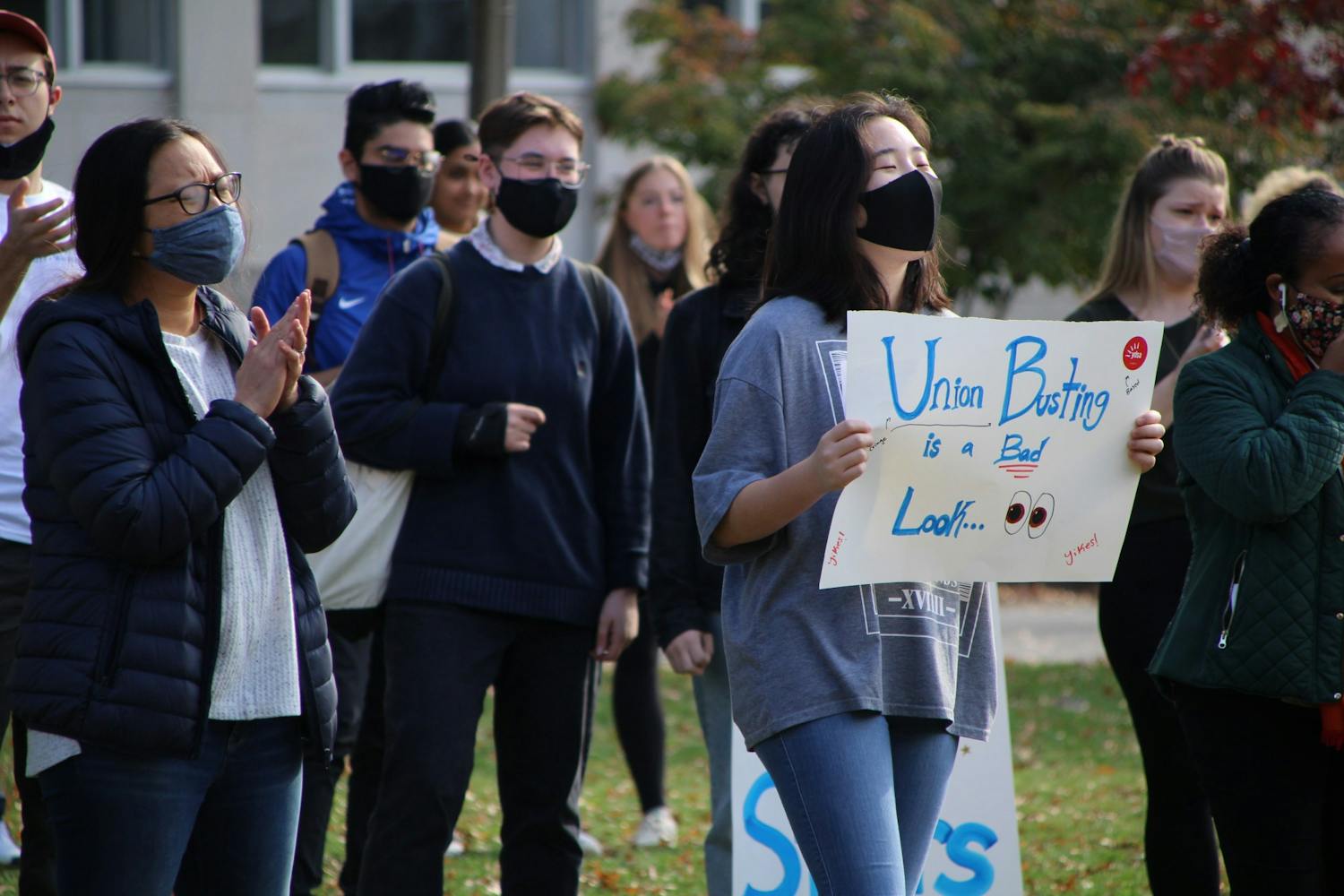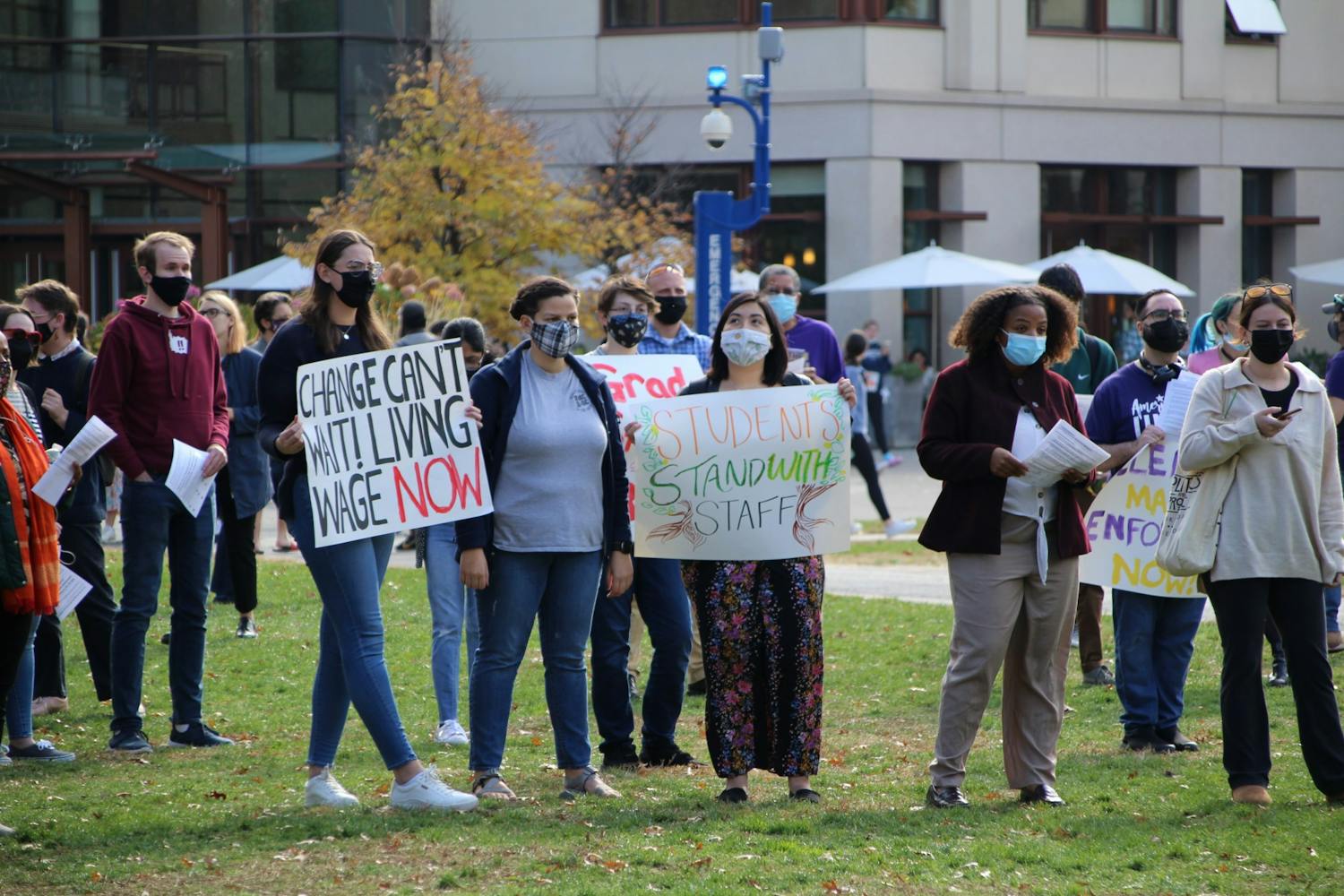American University staff and students protested on the quad Thursday afternoon for a second time, seeking to raise awareness about the low wages for staff, adjunct and graduate students at AU.
This protest focused on increased attention upon wage issues at AU, after the first protest brought initial attention to the issue.
This time, more undergraduate students came out to support their professors and teaching assistants in getting the wages they’ve spent over a year advocating for.
There are currently over 1,800 AU employees that are unionized with SEIU Local 500, according to internal statistics obtained by The Eagle. Staff organized the second protest after what they alleged was slow progress in the University’s negotiation of wages with the labor unions after their initial protest in October. David Jacobs, an adjunct professor in the Kogod School of Business, said that the second protest was not only to address wage issues but AU’s “snail-like movement” to get negotiations done.
Organizers said they are hoping that increased awareness and public attention on their current wage issues will place more pressure on the University. Through this added pressure, the staff is hoping the University will approach the negotiations with more urgency.
However, Jacobs and other staff members expressed that they do not expect much improvement in their contracts over the three years AU has proposed to them.
“Now what AU is proposing is less than one percent per year, and what is ultimately like three percent over three years,” Jacobs said. “AU is dealing with increased demands from us employees that have decided that we cannot survive under prior conditions. We depend on AU to pay us adequately.”
“I am an adjunct professor that used to work full-time,” Jacobs said. “The only way I can survive at this point is to rely on my pension and I basically am working hours as though I’m still full-time.”
Thomas Nowak, a sophomore in the College of Arts and Sciences, first heard about the working conditions for AU staff after they protested in October. He said he felt compelled to join them this time after hearing personal stories from his professors and TAs.
“We should be advocating for our professors, their pay affects us,” Nowak said. “If [the University] wants us to support academic institutions then we need the faith that the people teaching us will have a secure job.”
Salvatore Cottone and Ella Henderson, students in the School of International Service and College of Arts and Sciences respectively, are both freshmen who participated in the protest and cited disappointment and frustration with staff wage struggles.
“I was expecting to be downtown protesting, not demanding that my own campus be paying my own professors a liveable wage,” Cottone said.
Sam Sadow, a full-time staff member and adjunct lecturer for the art department in the CAS, led speeches throughout the protest. Sadow believes that people showing up to the last protest worked.
“It’s been hard, but I have to say the next bargaining session was productive,” he said. “We’ll be back until AU settles a negotiation with us.”
The University said they are carefully handling the negotiation process and not allowing the public to influence any part of the process.
“While community members are welcomed and encouraged to express their views, a contract can only be concluded in the negotiating process between the university and the union representing the bargaining unit,” Elizabeth Deal, a University spokesperson, said in an email to The Eagle.
Deal said the University is and will continue negotiations under procedures set by the National Labor Relations Board with SEIU in good faith.
The University is one of the biggest sources of employment for students after they graduate based on exit surveys by graduating classes every year, according to Career Services Systems Administrator Aubrey Hill. These exit surveys are used to statistically indicate where AU graduates are being employed. However, Hill said there is a concerning difference in how the University treats its alumni working for the school from those working elsewhere.
According to Hill, because the University knows that students feel grateful for the school after they graduate, many students accept job offerings at AU after they graduate despite lower pay than other employers might offer. She said that while the University seems to celebrate successful alumni who don’t take AU-affiliated jobs, those who accept positions with the University are blindsided by the lack of benefits and raises available to them.
Daniel Jenks, a TA for the sociology department, is a member of the graduate student union and is a member of their bargaining committee between the union and the University. Jenks and Hill have shared experiences in dealing with the University
“There’s been a lot of resistance from the University to receive anything meaningful from them,” Jenks said. They also said that the University’s starting offer for the graduate student union was a $0 raise in the first year, followed by subsequent minimal raises. The talks after the protest in October have been successful in raising the offer by a little, but not by the amount it should have been raised, according to Jenks.
With the current wages AU has set, graduate students say they are struggling to support themselves.
“Washington, D.C. is one of the most expensive places to live in the country, and most [graduate students] are all, by and large, renters,” Jenks said. “A raise for me would equate to a month of groceries and I still struggle for groceries with just this job alone.”
According to a flyer given out at the rally, 14 of the highest-paid officers at AU currently earn more than all 568 adjunct faculty members combined. The officers earned a combined total of $7,039,207 in the school year ending June 30, 2020, according to both the flyer and the University’s most recent tax filing.
Deal told The Eagle that the University is working to confirm those numbers, and that there are “a number of nuances to the issue.”
Issues such as lack of extra compensation for staffers who have to cover other AU employees who have left or have taken on additional work were also outlined in a newsletter among the AU staff union. An earlier publication of this newsletter said that graduate students were offered nothing, while adjuncts were offered 0.6 percent for 2021.
Mirashaye Basa is a member of the Library Staff Union, which is covered within Service Employees International Union Local 500. Basa is a new working full-time staff member at the university and has only started to notice the lack of AU listening to their workers.
“I would really like all of the staff, especially [those] here, to be respected and for our wages and our rights to be changed,” Basa said. “The progress society has made with wages and pay have not been reflected at the University.”
This is a developing story and will be updated as more information becomes available. Correction appended.

